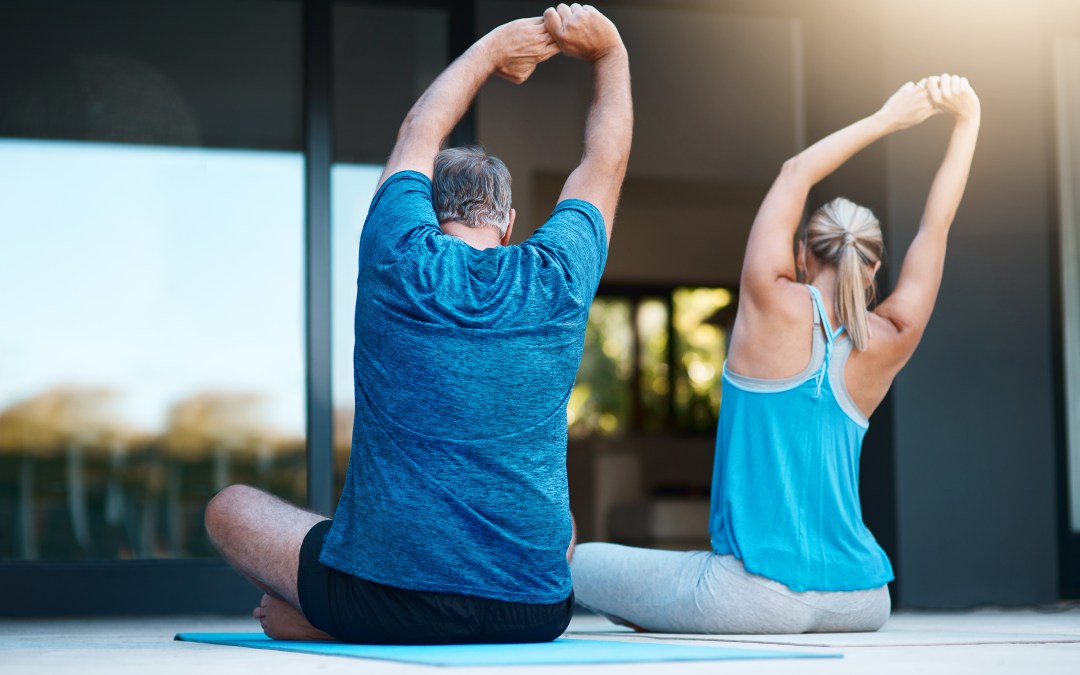More than a year into this pandemic, vaccination efforts have sparked conversations about “the new normal.” While we have begun to make progress against COVID-19, though, one thing remains certain: The “new normal”—whatever it ultimately looks like—calls for solid preventive health habits.
While preventing viral infection has (understandably) been the focus of conversation, good preventive habits are also still necessary for an all-around healthy lifestyle.
Why good preventive habits are more important than ever
Roughly 22% of adults have reported gaining weight during the pandemic due to COVID-19 and self-quarantine mandates. It’s just one of the ways the last year has hurt our health in ways that go beyond the illness itself.
From stress eating to reduced mobility, weight gain and poor health habits increase your susceptibility to high-risk conditions, including high blood pressure, diabetes, and heart disease. These conditions then increase your chances of complications like heart attack and stroke, which then lead back to potential COVID-19 infection and complications if you’re not vaccinated. It’s a vicious cycle. In a post-COVID world, maintaining good health will depend heavily on preventive health habits. So where can you begin?
1. Eat less sugar.
You don’t have to give up sweets entirely. But read nutrition labels, be aware of “added sugars,” and try to cut out sugar where you can—one fewer soft drink a week, eating a few more vegetables instead of fruits, etc. Your tastebuds will actually adapt to this lower-sugar diet fairly quickly.
2. Put down the phone.
Again, not for the whole day. We’re realistic! But by limiting your exposure to social media, even by a little, you can improve your psychological health.
3. Get moving.
After a year of sedentary lockdown living, it’s especially important to begin an exercise routine now, even if you start slow. 150 weekly minutes of moderate physical activity is a good rule of thumb.
4. Have fun.
Really. Make time for recreational activity you enjoy, both by yourself and with your loved ones. Hobbies help your mental health.
5. Get outside.
And as long as you’re out there, take a stroll. Going for a walk—a simple, 30-minute walk—can help you reduce stress, lose weight, lower blood pressure, improve circulation, strengthen your bones, and lift your mood.
6. Wear sunscreen.
It’s overlooked but so much more important than getting a “healthy” tan. Protect yourself from UV rays with SPF 30 or higher and wear it even on cloudy days. It will lower your risk for skin cancer and premature aging of the skin.
7. Drink water.
It bears repeating: Hydration is really, really important, and not just when you’re working out. Staying hydrated helps to prevent joint pain and kidney damage, relieves fatigue, promotes everything from digestion to skin health, and is generally one of the easiest and best habits for your health.
8. Go to bed.
Regular sleep improves your concentration, lowers risk for stroke and heart attack, improves your immune function, counters inflammation, boosts mental health and cognition, and is one of the best predictors of good, balanced overall health.
Of course, there are also some critical preventive steps to take that you can’t do every day—but by making sure to take care of them as soon as possible, you’ll be helping to protect your long-term health in a major way.
9. Get your screenings.
From blood pressure and cholesterol screenings to skin checks and mammograms, making sure to get your annual preventive health assessments is essential. This is especially true if you postponed an evaluation due to the pandemic.
10. Get vaccinated.
In addition to the COVID-19 vaccine, numerous preventive vaccines, including the flu shot and shingles vaccine, can protect adults and those around them from severe illness or chronic conditions. Speak with your doctor to understand which risks you face and how vaccines could potentially help.
Make preventive habits your personal “new normal.”
As we continue to get our lives back on track, we must stay up-to-date with preventive health practices. From vaccinations to daily exercise, preventive health habits can help reduce the risk of chronic or severe illness in yourself, while also helping you feel your best.

